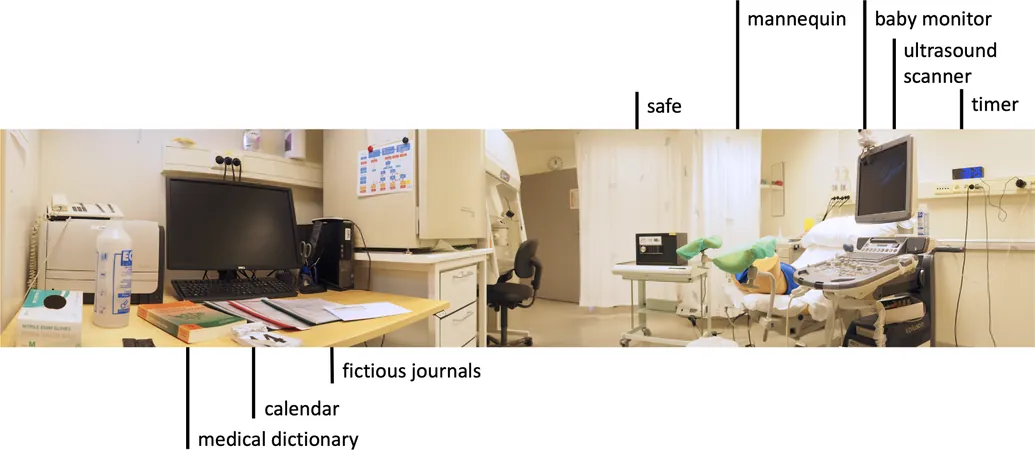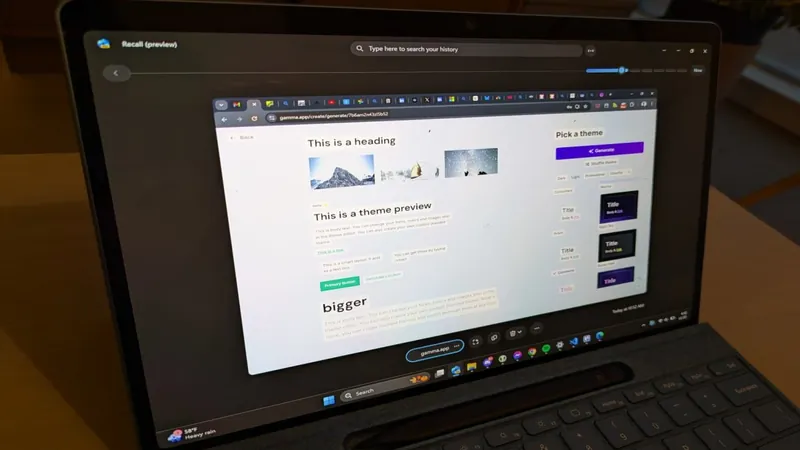
Unlocking Knowledge: How Escape Rooms Enhance Medical Learning Outcomes
2024-11-23
Author: Sarah
Introduction
In the realm of medical education, the traditional lecture-based approach has often been criticized for its lack of engagement, leading educators to explore more interactive teaching methods. Among these, the concept of using escape rooms for educational purposes has gained traction due to its potential to foster teamwork and critical thinking skills. Recent studies have shown that integrating escape room games in medical training can positively influence learning outcomes.
What are Escape Rooms?
Escape rooms are immersive, live-action team-based games where players must solve puzzles and riddles within a set time limit to "escape" from a locked space. This interactive format not only sparks excitement but also promotes active learning, allowing students to engage with the material in a way that traditional classrooms often cannot provide. The format has been adapted to various educational contexts, notably in medical fields, with a focus on developing practical skills and collaborative abilities.
Case Study: University of Oslo
A notable implementation of an escape room in medical education was carried out for undergraduate medical students at the University of Oslo. Designed specifically for a course on Reproductive Endocrinology and Infertility (REI), the escape room fostered teamwork while challenging students to solve medical puzzles linked to real-life scenarios, such as planning a patient’s hospital discharge amid complexities such as diabetes and mental health issues.
Learning Experience
The game required students to work in small teams to navigate a series of puzzles, leveraging both their medical knowledge and problem-solving skills. The puzzles ranged from interpreting ultrasound findings to making critical decisions based on clinical histories. Feedback from students highlighted their enhanced understanding of clinical processes and improved teamwork skills, showcasing that experiential learning can lead to better retention of knowledge.
Assessment Results
Results from assessments indicated a moderate but notable improvement in students' declarative knowledge of REI topics compared to peers who did not participate in the escape room activity. While the increase in test scores was significant, the study acknowledged various factors that could influence these outcomes, including the complexity of the assessment questions and the short duration of exposure to the escape room format.
Debriefing Sessions
Moreover, the implementation of debriefing sessions post-game proved crucial in linking the game experience to real-world clinical applications. Students engaged in reflective discussions about their problem-solving strategies, teamwork dynamics, and the medical knowledge applied during the game, indicating that such educational games serve not just to entertain but also to deepen understanding.
Logistical Considerations
In terms of logistics, the escape room game requires careful planning and resources. Facilities need a clinical setting equipped with relevant props, which can include medical instruments and mannequins. The role of a gamemaster is vital to guide participants and ensure a seamless experience, though it limits how many groups can simultaneously partake in the activity.
Conclusion
Despite the initial costs and setup challenges, the educational benefits of escape rooms, including increased engagement, improvement in knowledge retention, and the development of essential soft skills, suggest they could revolutionize medical training. As a fun and innovative approach, escape rooms not only captivate students but also prepare them for the collaborative nature of healthcare, making learning both effective and enjoyable.
Future Prospects
As the popularity of educational escape rooms continues to grow, the question remains—will they become a staple in medical education, or are they merely a passing trend? Only time will tell, but one thing is certain: they have added a new dimension to learning that could resonate across various educational fields.




 Brasil (PT)
Brasil (PT)
 Canada (EN)
Canada (EN)
 Chile (ES)
Chile (ES)
 España (ES)
España (ES)
 France (FR)
France (FR)
 Hong Kong (EN)
Hong Kong (EN)
 Italia (IT)
Italia (IT)
 日本 (JA)
日本 (JA)
 Magyarország (HU)
Magyarország (HU)
 Norge (NO)
Norge (NO)
 Polska (PL)
Polska (PL)
 Schweiz (DE)
Schweiz (DE)
 Singapore (EN)
Singapore (EN)
 Sverige (SV)
Sverige (SV)
 Suomi (FI)
Suomi (FI)
 Türkiye (TR)
Türkiye (TR)